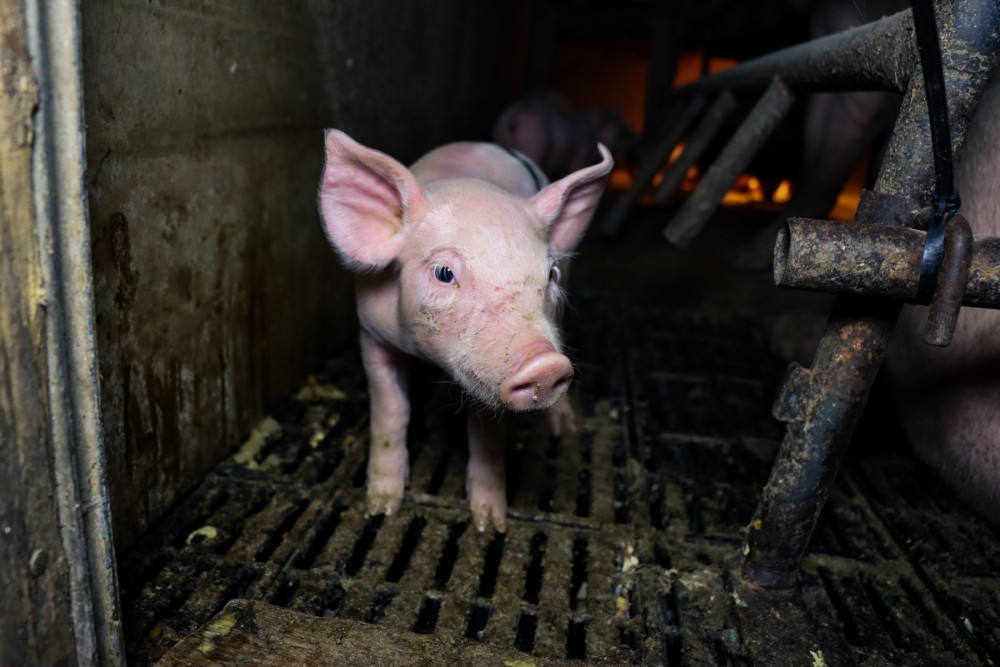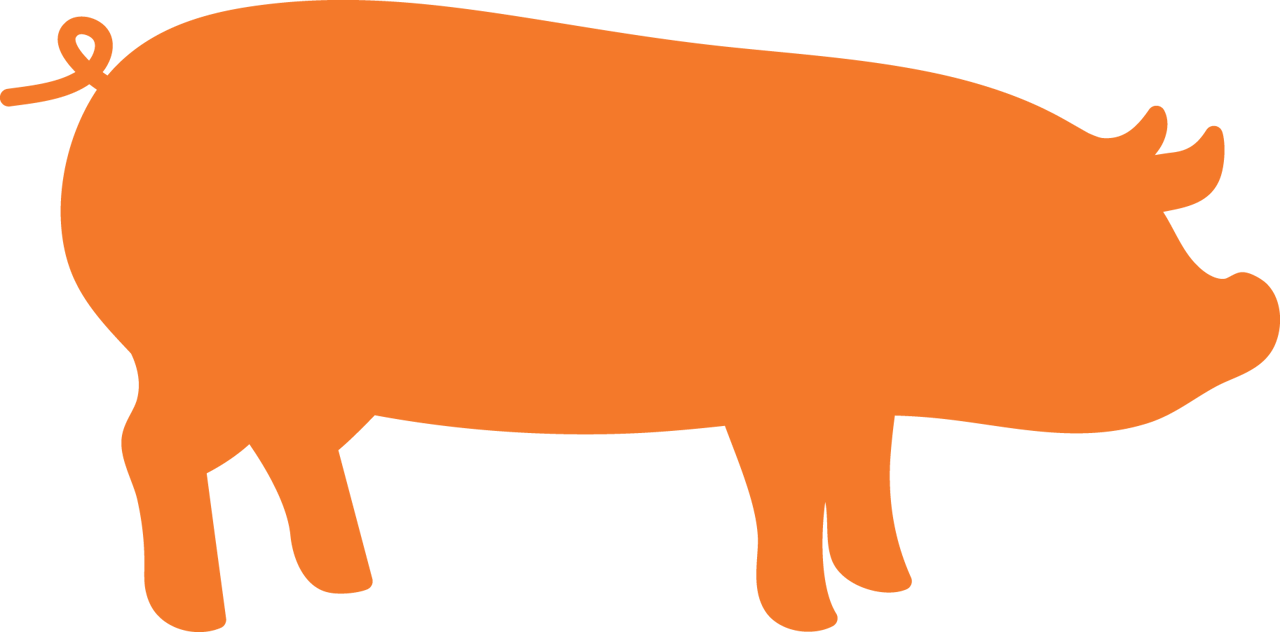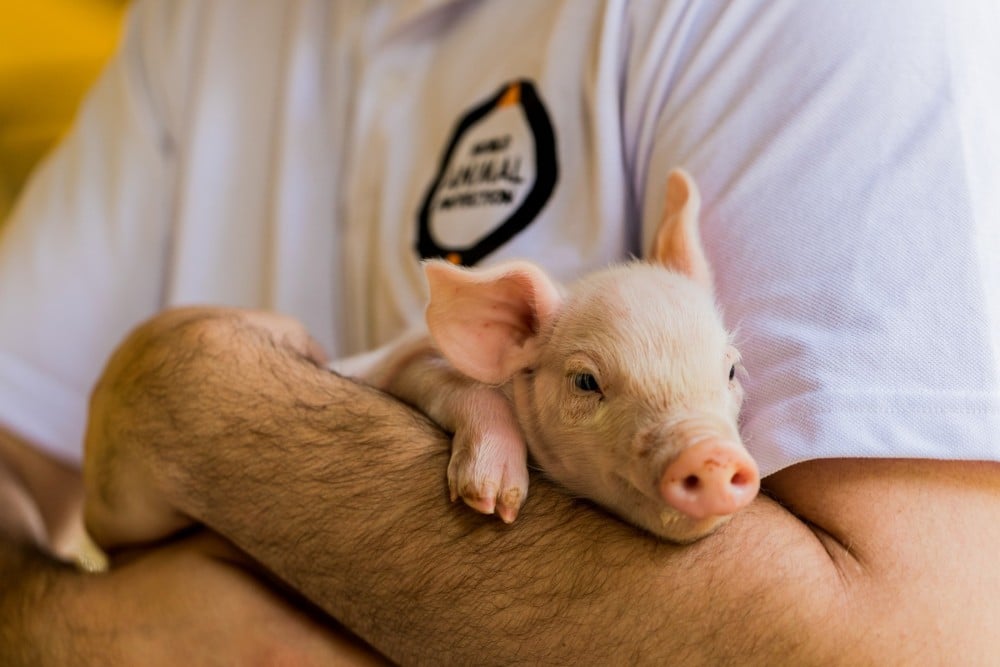
Factory farming is one of the largest sources of animal suffering on the planet.
How can we end factory farming?It's not just unhealthy for animals
Factory farming, or “intensive animal farming”, is the modern system in which animals are most often raised for food in Canada and around the world. These industrial facilities are characterized by raising large numbers of animals, mostly indoors, in conditions intended to maximize production at minimal cost.
Of the more than 70 billion animals farmed annually, 50 billion of them spend their lives on factory farms. They endure short, miserable lives in conditions so horrible they are often prevented from engaging in natural behaviors such as dust bathing, raising their offspring, or even lying down comfortably.
It's not just unhealthy for animals, the United Nations Environment Program (UNEP), has identified the unsustainable, intensive animal production, also known as "factory farming", as a risk factor for the emergence and spread of zoonotic diseases.

How could factory farming contribute to new pandemics?
The same intensity in factory farming which causes suffering for animals, such as pigs, could contribute to new pandemics.
Homogeneous gene pool
In factory farming, animals are often genetically uniform as they have been bred for high production in order to meet the increasing demand and consumption of animal protein. This makes them a genetically homogenous host population which are more vulnerable to infection than genetically diverse populations because the latter are more likely to include some individuals that better resist disease.
Crowded conditions
Animals in factory farms are kept in crowded conditions; lack of physical distancing between the animals means diseases can easily jump from one animal to another making factory farms a hotbed for disease.
Antibiotic resistance
Because animals are crowded and stressed, they are given a low dose of antibiotics to help combat illnesses. More than 70 percent of all medically important antibiotics in the country are sold for use in animals. Their routine use in farmed animals leads to antibiotic-resistant bacteria, also known as superbugs, that can be passed on to people.
It's already happening
It is estimated that more than 2.8 million antibiotic-resistant infections occur and 35,000 people die as a result in the US each year.
How can we end factory farming?
-
Reducing meat consumption
-
Purchasing meat from higher welfare farms when we do choose to consume animal products

Start changing your actions today
Get a free humane shopping guide
